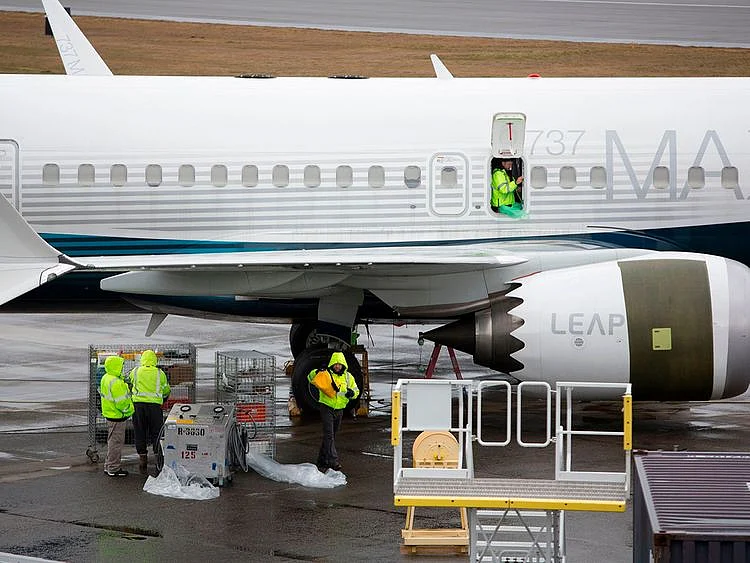Boeing reportedly facing SEC probe over investor disclosures related to 737 Max
Investigators are also looking at Boeing’s financial statements

Los Angeles
Embattled aerospace giant Boeing Co. is reportedly facing a probe by the US Securities and Exchange Commission concerning whether the company properly disclosed issues related to its 737 Max aeroplanes.
Citing people familiar with the matter, Bloomberg reported that officials in the SEC’s enforcement division are investigating whether the Chicago-based plane maker was adequately forthcoming with shareholders about “material problems with the plane.”
Investigators are also looking at Boeing’s financial statements to make sure they sufficiently reflected the possibility of effects from the 737 Max issues.
The SEC and Boeing declined to comment on the report.
An SEC probe would only be the latest of Boeing’s growing problems related to its 737 Max aeroplanes following two deadly crashes. The company is facing congressional and federal investigations, as well as a criminal probe. And families of victims who were killed in the crashes have filed lawsuits.
“They haven’t engendered a lot of trust out there,” said John Jacobs, executive director at Georgetown University’s Centre for Financial Markets and Policy. “They’re going to be very engaged in fighting this for many years to come.”
Legal experts have said civil lawsuits brought by crash victims’ families will have strong claims for damages. In addition, Boeing could face product liability related to supposed plane defects, and negligence allegations claiming that the company did not adequately train pilots and did not take steps to fix problems after the first crash.
The first crash occurred in October when a Lion Air flight plunged into the Java Sea shortly after take-off. Less than six months later, an Ethiopian Airlines flight crashed minutes after take-off. Together, the two crashes killed 346 people, leaving no survivors.
Investigators have implicated the planes’ flight control software, known as Manoeuvring Characteristics Augmentation System or MCAS. The software was intended to prevent stalls by pushing the plane’s nose down.
Boeing intends to issue an update to the software, which still needs a sign-off from the Federal Aviation Administration. On Friday, acting FAA Administrator Daniel Elwell refused to commit to a timetable for a resumption of service.
Boeing has been criticised by US pilots unions about a lack of transparency about the system, and earlier this week, a European pilots group said the company and the FAA were moving too fast to reintroduce the planes into the skies.
Since the Ethiopian Airlines crash, 737 Max planes have been grounded worldwide.
Elwell told CNBC that airlines that took the grounded aircraft out of their schedules until August do not need to extend those flight cancellations, a signal that the FAA may clear the plane for flying again as early as late June.
“It definitely could be a month, two months,” he told CNBC. “It’s all determined by what we find in our analysis of (Boeing’s) application, and we’re pretty confident that the application is in good shape.”
But earlier this week, he had raised the possibility that it could take up to a year to return the 400 grounded Max aircraft to service.
The Financial Times contributed to this report.
Sign up for the Daily Briefing
Get the latest news and updates straight to your inbox
Network Links
GN StoreDownload our app
© Al Nisr Publishing LLC 2026. All rights reserved.